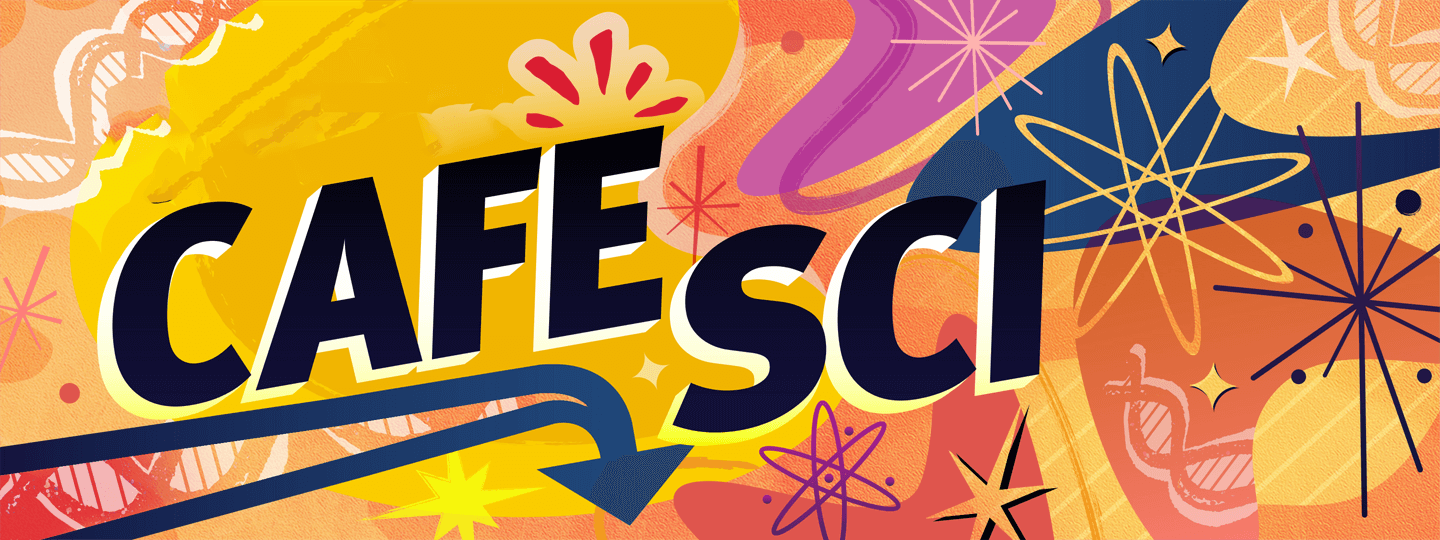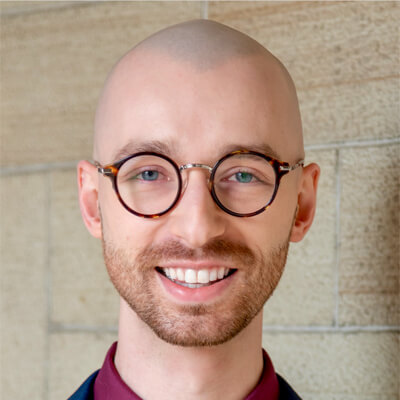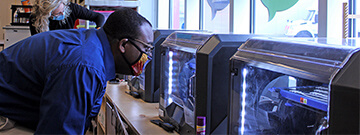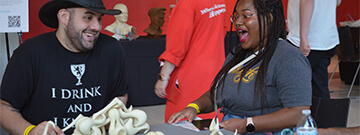
Join us for Café Scientifique
Interested in science? Want to learn more about the latest technology breakthroughs in normal English, minus the jargon? Then Café Scientifique Pittsburgh at Carnegie Science Center is the place to be!
Café Sci is THE place in Pittsburgh where anyone interested in science can get together to discuss today’s science issues with experts, and best of all… you can ask your own questions! After a brief talk by our monthly guest speaker, the evening is dedicated to a question-and-answer session.
|
Presented by: |
What does being “in the closet” or “out of the closet” have to do with LGBTQIA+ people’s health?
What does being “in the closet” or “out of the closet” have to do with LGBTQIA+ people’s health?
Upcoming virtual lecture:
Mon., June 2
7–9 p.m.
Register for the free lecture! ![]()
Presenter
Dr. Joel Le Forestier
Assistant Professor, University of Pittsburgh Department of Psychology

Members of the LGBTQIA+ community often face prejudice, stereotypes, and discrimination targeting them because of their sexual orientations. A common way for them to respond to these experiences is to be “in the closet.” That is, they conceal their sexual orientation so that others won’t find out about it. Unfortunately, decades of research have shown that concealing a stigmatized identity often leads to worse health. In celebration of Pride Month, join Dr. Joel Le Forestier as he presents research seeking to understand what health outcomes are specifically impacted by concealing and why.
About Professor Dr. Joel Le Forestier
Dr. Joel Le Forestier is an assistant professor in the Department of Psychology at the University of Pittsburgh and the primary investigator of the Identity & Intergroup Relations Lab. Before coming to Pitt, he completed his Ph.D. at the University of Toronto and was a postdoctoral research fellow at Cornell University. His research focuses on people’s experiences in diverse contexts and what can be done to help people live more happily and healthily in our diverse world. His award-winning research has been published in prestigious scientific journals such as Science, Nature Reviews Psychology, Psychological Science, and the Journal of Experimental Psychology: General.
Register for Café Sci
The event is FREE to attend, but preregistration is required ![]() ! Carnegie Science Center would like to continue to offer programs like Café Sci, Women in STEM, and others. Please consider making a donation when you register. Once you sign up, you’ll get an email confirmation. Have a question for Dr. Joel Le Forestier? You’ll be able to type your questions in the Q&A section during the presentation!
! Carnegie Science Center would like to continue to offer programs like Café Sci, Women in STEM, and others. Please consider making a donation when you register. Once you sign up, you’ll get an email confirmation. Have a question for Dr. Joel Le Forestier? You’ll be able to type your questions in the Q&A section during the presentation!
We want to hear from you!
What impact has Café Sci had on you? Are you a scientist interested in speaking at Café Sci? Do you have a recommendation for a speaker or topic? Contact us at info@carnegiesciencecenter.org.





